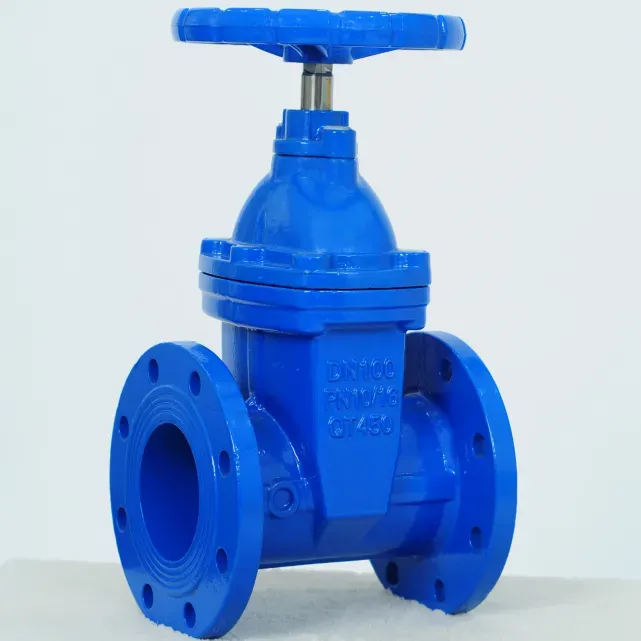Exploring the Different Types and Uses of Ring Flanges in Engineering Applications
Understanding Ring Flanges An Essential Component in Industrial Applications
In various industrial applications, the importance of reliable connections between components cannot be understated. One such essential component that facilitates these connections is the ring flange. Ring flanges are circular pieces of metal that are used to connect pipes, valves, pumps, and other equipment in piping systems, especially in high-pressure applications. This article delves into the characteristics, types, advantages, and applications of ring flanges, highlighting their critical role in ensuring safety and efficiency in various industries.
Characteristics of Ring Flanges
Ring flanges are typically manufactured from materials such as carbon steel, stainless steel, and other alloys. The choice of material is crucial as it determines the flange's ability to withstand temperature, pressure, and corrosive environments. Ring flanges are characterized by their flat face, raised face, or RTJ (Ring Type Joint) configurations, which dictate how they will mate with other components in the system.
The dimensions of a ring flange are determined by standards such as ASME, ANSI, and API, which provide guidelines on size, thickness, and pressure ratings. This standardization is vital as it ensures compatibility with various components and equipment, facilitating easier maintenance and replacement.
Types of Ring Flanges
There are several types of ring flanges, each designed for specific applications
1. Weld Neck Flanges These flanges have a long neck that allows for a smooth transition between the flange and the pipe. They are highly favored in high-pressure applications due to their strength and stability.
2. Slip-On Flanges Slip-on flanges are designed to slide over the pipe and are then welded in place. They are easier to align and install but are typically used in lower-pressure applications.
3. Blind Flanges These flanges are solid and do not have a hole in the center. They are used to close the ends of piping systems, allowing for easy access for maintenance when needed.
4. Socket Weld Flanges Similar to slip-on flanges, socket weld flanges fit over the pipe but require a fillet weld on the top for added strength, making them suitable for high-pressure systems.
5. Threaded Flanges These flanges are designed with internal threads and can be easily screwed onto pipes, making them ideal for applications where welding is not feasible.
Advantages of Ring Flanges
ring flanges

Using ring flanges has several advantages, including
- Versatility Ring flanges can be used in various industries, from oil and gas to water treatment, making them a flexible choice for piping systems.
- Ease of Maintenance Since ring flanges provide a detachable connection, maintenance on piping systems can be conducted more efficiently without the need for cutting or welding
.- Leak Prevention The design of ring flanges, especially when accompanied by proper gaskets, ensures a tight seal that minimizes the risk of leaks, which is crucial for safety in pressurized systems.
- Cost-Effectiveness Over time, the use of ring flanges can reduce overall costs associated with piping maintenance and replacement due to their durability and ease of installation.
Applications of Ring Flanges
Ring flanges are broadly used in various sectors, including
- Oil and Gas They connect pipelines, tanks, and other equipment in exploration and production processes.
- Chemical Processing Flanges are vital for maintaining the integrity of chemical plants, where the control of pressure and temperature is crucial.
- Water Treatment In water supply systems, ring flanges provide connections for pipes and valves, ensuring safe transfer and treatment of water.
- Power Generation Ring flanges are used in power plant piping systems to handle high-pressure steam and hot water applications.
In conclusion, ring flanges are an invaluable component in modern industrial applications. Their robust design, versatility, and ease of maintenance make them an excellent choice for connecting various elements within piping systems. As industries continue to evolve, the demand for reliable and efficient components like ring flanges will undoubtedly persist, ensuring safe and effective operations across multiple sectors.
-
The Key to Fluid Control: Exploring the Advantages of Ball Valves in Industrial SystemsNewsJul.09,2025
-
The Versatile World of 1, 2, and 3 Piece Ball ValvesNewsJul.09,2025
-
Stainless Steel Ball Valves: The Ideal Choice for Efficient Flow ControlNewsJul.09,2025
-
Optimizing Fluid Control with Ball Float ValvesNewsJul.09,2025
-
Manual Gate Valves: Essential for Control and EfficiencyNewsJul.09,2025
-
Everything You Need to Know About Butterfly ValvesNewsJul.09,2025
-
The Versatility of Wafer Type Butterfly ValvesNewsJul.08,2025




